The Association for Computing Machinery (ACM) is a US-based international learned society for computing. It was founded in 1947 and is the world's largest scientific and educational computing society. The ACM is a non-profit professional membership group, reporting nearly 110,000 student and professional members as of 2022. Its headquarters are in New York City.

Computer science is the study of computation, information, and automation. Computer science spans theoretical disciplines to applied disciplines.
Software engineering is an engineering approach to software development. A practitioner, a software engineer, applies the engineering design process to develop software.
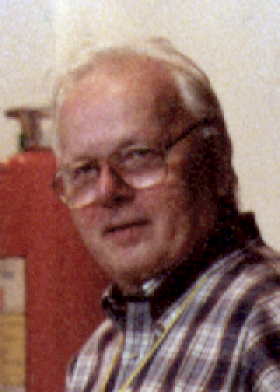
Kristen Nygaard was a Norwegian computer scientist, programming language pioneer, and politician. Internationally, Nygaard is acknowledged as the co-inventor of object-oriented programming and the programming language Simula with Ole-Johan Dahl in the 1960s. Nygaard and Dahl received the 2001 A. M. Turing Award for their contribution to computer science.
An information system (IS) is a formal, sociotechnical, organizational system designed to collect, process, store, and distribute information. From a sociotechnical perspective, information systems are composed by four components: task, people, structure, and technology. Information systems can be defined as an integration of components for collection, storage and processing of data of which the data is used to provide information, contribute to knowledge as well as digital products that facilitate decision making.

Bertrand Meyer is a French academic, author, and consultant in the field of computer languages. He created the Eiffel programming language and the concept of design by contract.

The Technische Universität Darmstadt, commonly known as TU Darmstadt, is a research university in the city of Darmstadt, Germany. It was founded in 1877 and received the right to award doctorates in 1899. In 1882, it was the first university in the world to set up a chair in electrical engineering. In 1883, the university founded the first faculty of electrical engineering and introduced the world's first degree course in electrical engineering. In 2004, it became the first German university to be declared as an autonomous university. TU Darmstadt has assumed a pioneering role in Germany. Computer science, electrical engineering, artificial intelligence, mechatronics, business informatics, political science and many more courses were introduced as scientific disciplines in Germany by Darmstadt faculty.

Daphne Koller is an Israeli-American computer scientist. She was a professor in the department of computer science at Stanford University and a MacArthur Foundation fellowship recipient. She is one of the founders of Coursera, an online education platform. Her general research area is artificial intelligence and its applications in the biomedical sciences. Koller was featured in a 2004 article by MIT Technology Review titled "10 Emerging Technologies That Will Change Your World" concerning the topic of Bayesian machine learning.

National College of Ireland (NCI) is a not-for-profit, state-aided third-level education institution in Dublin. It was founded in 1951 as a joint venture between the Jesuits in Ireland and Irish trade unions, and was originally named the Catholic Workers College, Dublin. It is now an independent higher education institution, offering full and part-time courses from undergraduate to postgraduate level, in the areas of business, computing, psychology and education.
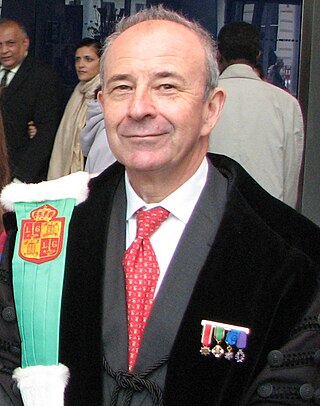
Sami Erol Gelenbe, a Turkish and French computer scientist, electronic engineer and applied mathematician, pioneered the field of Computer System and Network Performance. Currently Professor in the Institute of Theoretical and Applied Informatics of the Polish Academy of Sciences, he is also an Associate Researcher in the I3S Laboratory and Abraham de Moivre Laboratory. Fellow of several National Academies, he Chairs the Informatics Section of Academia Europaea since 2023. His previous Professorial Chairs include the University of Liège (1974-1979), University Paris-Saclay (1979-1986), University Paris Descartes (1986-2005), NJIT (1991–93), ECE Chair at Duke University (1993-1998), University Chair Professor and Director of EECS, University of Central Florida (1998-2003), and Dennis Gabor Professor and Head of Intelligent Systems and Networks, Imperial College (2003-2019).

Mark Joseph Guzdial is a Professor in the College of Engineering at the University of Michigan. He was formerly a professor in the School of Interactive Computing at the Georgia Institute of Technology affiliated with the College of Computing and the GVU Center. He has conducted research in the fields of computer science education and the learning sciences and internationally in the field of Information Technology. From 2001–2003, he was selected to be an ACM Distinguished Lecturer, and in 2007 he was appointed Vice-Chair of the ACM Education Board Council. He was the original developer of the CoWeb, one of the earliest wiki engines, which was implemented in Squeak and has been in use at institutions of higher education since 1998. He is the inventor of the Media Computation approach to learning introductory computing, which uses contextualized computing education to attract and retain students.
Computational thinking (CT) refers to the thought processes involved in formulating problems so their solutions can be represented as computational steps and algorithms. In education, CT is a set of problem-solving methods that involve expressing problems and their solutions in ways that a computer could also execute. It involves automation of processes, but also using computing to explore, analyze, and understand processes.
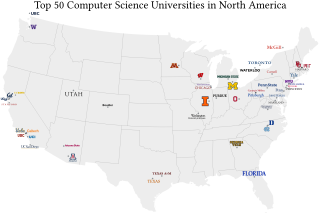
Computer science education or computing education is the field of teaching and learning the discipline of computer science, and computational thinking. The field of computer science education encompasses a wide range of topics, from basic programming skills to advanced algorithm design and data analysis. It is a rapidly growing field that is essential to preparing students for careers in the technology industry and other fields that require computational skills.
Informatics is the study of computational systems. According to the ACM Europe Council and Informatics Europe, informatics is synonymous with computer science and computing as a profession, in which the central notion is transformation of information. In some cases, the term "informatics" may also be used with different meanings, e.g. in the context of social computing, or in context of library science.
The Institute for Computer Science and Control is a Hungarian research institute in Budapest, founded in 1964.
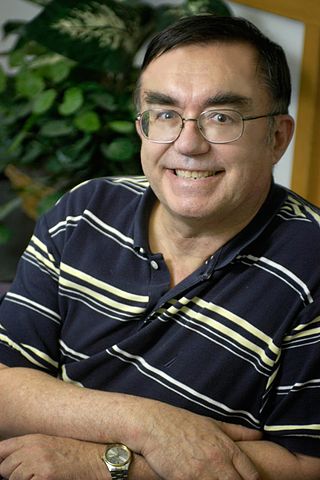
Geoffrey Charles Fox is a British-born American theoretical physicist and computer scientist. As of March 2024, he is a professor in the Computer Science Biocomplexity Institute at the University of Virginia.

The Association for Computing Machinery's Council on Women in Computing (ACM-W) supports, celebrates, and advocates internationally for the full engagement of women in all aspects of the computing field, providing a wide range of programs and services to ACM members and working in the larger community to advance the contributions of technical women. ACM-W is an active organization with over 36,000 members.
Valerie Barr is an American computer scientist, and is the Margaret Hamilton Distinguished Professor of Computer Science at Bard College. She formerly held the Jean Sammet endowed chair in the department of Computer Science at Mount Holyoke College in South Hadley, Massachusetts. She is known for her work with women in computing.

Matthias Grossglauser is a Swiss communication engineer. He is a professor of computer science at EPFL and co-director of the Information and Network Dynamics Laboratory (INDY) at EPFL's School of Computer and Communication Sciences School of Basic Sciences.
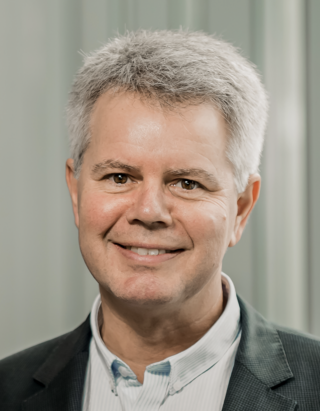
Danish computer scientist Michael Edelgaard Caspersen has spent his academic life furthering computer science education, at all levels. His research interests are computing education, programming didactics, programming methodology, and object-oriented programming. He is best known for his work on computing education research and development, particularly his work to promote informatics as a fundamental discipline for all.













